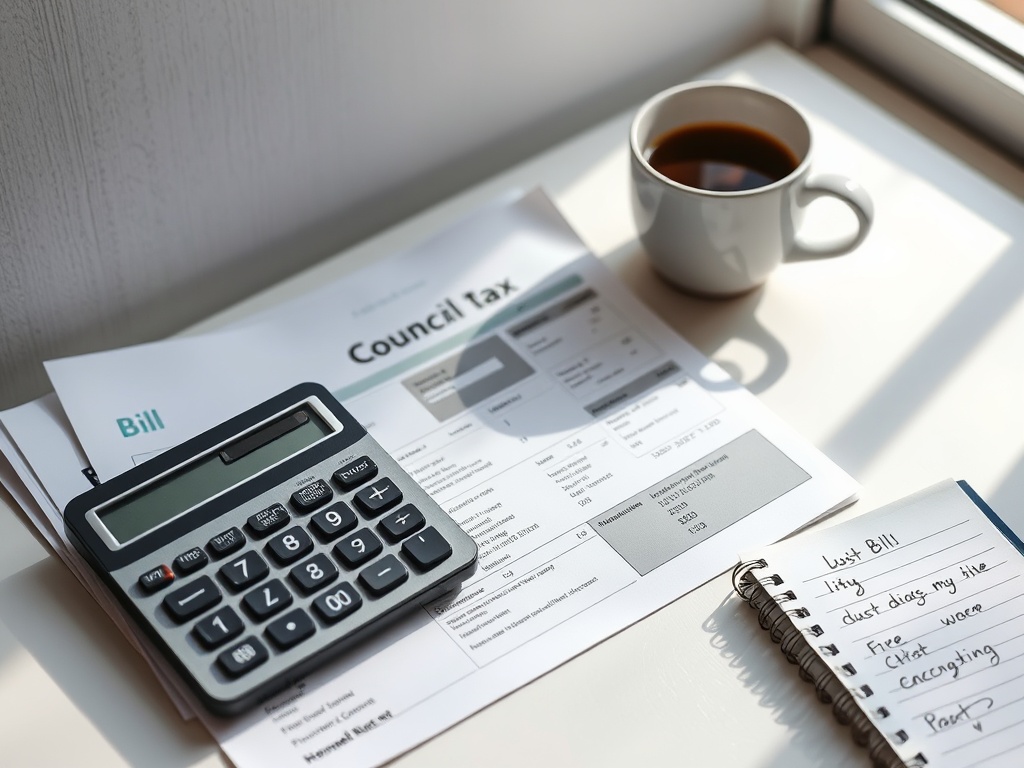Council Tax Increases: What You Need to Know
As of April, households across England are bracing for significant increases in council tax, with a staggering 85% of local councils planning to implement a maximum rise of at least 4.99%. Some councils may even opt for even steeper hikes, following the government’s approval. However, there are various strategies you can employ to potentially reduce your council tax bill. Here’s a comprehensive guide on the available discounts and exemptions you might qualify for.
Discounts Based on Household Composition
Many individuals may be eligible for discounts on their council tax. For instance, if you are the sole occupant of your home and qualify as the only bill payer, you can benefit from a 25% reduction on your council tax. Furthermore, numerous council tax support schemes exist to assist those on lower incomes, whether they are employed or not. In cases where there are no qualifying bill payers, you may even qualify for a complete exemption, meaning you wouldn’t need to pay any council tax at all.
Generally, all adults residing in the household are considered qualifying payers, with the exception of children. However, certain groups of adults can be exempt from council tax:
Full-Time Students
If every resident in your household is a full-time student, you won’t be required to pay any council tax. To qualify as a full-time student, your course must:
- Last at least one year
- Involve a minimum of 21 hours of study per week
For students under the age of 20 studying for qualifications up to A-Level, the requirements are slightly different:
- Your course must last at least three months
- Involve at least 12 hours of study per week
Individuals with Severe Mental Impairment
Adults who are classified as ‘severely mentally impaired’ are not counted when calculating council tax liabilities. According to the benefits organization Turn2Us, severe mental impairment refers to a permanent condition that significantly affects both intellectual and social functioning. This category can include conditions such as Parkinson’s disease, dementia, and various learning disabilities. To qualify for this exemption, a medical certificate confirming the impairment is required.
Carers
If you provide care for someone living in your household, you may not be counted as a bill payer, provided you deliver more than 35 hours of care each week. The individual you care for must be receiving specific benefits, and a full list of these can typically be found on your local council’s website.
Is Your Property in the Correct Band?

Council tax rates are categorized into eight distinct bands, each corresponding to property values from different years: 1991 in England and Scotland or 2003 in Wales. If you suspect that your property’s band is too high, you have the right to challenge it. However, it’s important to note that checking your band could result in an increase as well as a decrease. Consumer advocacy site MoneySavingExpert.com suggests two essential checks to determine if you should pursue a challenge:
- Neighbour’s Check: Compare your band with those of neighbors in similar or identical properties. This is a crucial starting point.
- Historic Value Check: Research what your property was worth in 1991 (or 2003 in Wales). Various online calculators can assist you with this, provided you know your home’s current market value.
If you decide to challenge your band, you’ll need to reach out to the Valuation Office Agency for assistance.
Income-Based Discounts
If you are on a low income or receiving certain benefits, you might be eligible for a reduction in your council tax bill. Local authority schemes vary, so it’s worthwhile to check with your specific council to see what options are available. You can easily find this information using the Government’s online checker—simply input your postcode. Notably, those receiving pension credit may find particularly favorable benefits, and if you receive the guarantee credit portion, you may be exempt from council tax altogether.
Claiming Refunds for Overpaid Council Tax
While not a direct reduction of your current bill, you may be entitled to reclaim funds if you have overpaid your council tax in the past. This situation often arises when individuals move homes mid-way through a tax year. For example, if you pay for a full year of council tax in ten installments (from April to March) but move out in mid-February, you may have overpaid by a month and a half. Many councils will automatically refund you before closing your account, but if this doesn’t happen, you should proactively reclaim any outstanding amounts. To check if you’ve overpaid, contact your former council directly.




